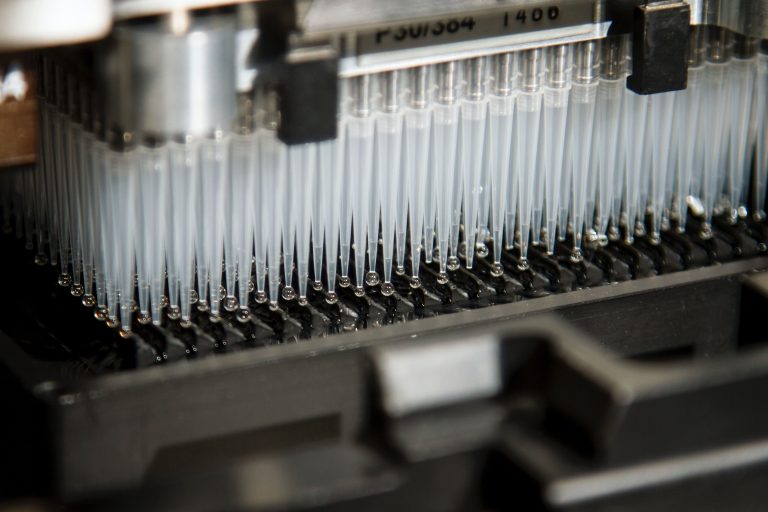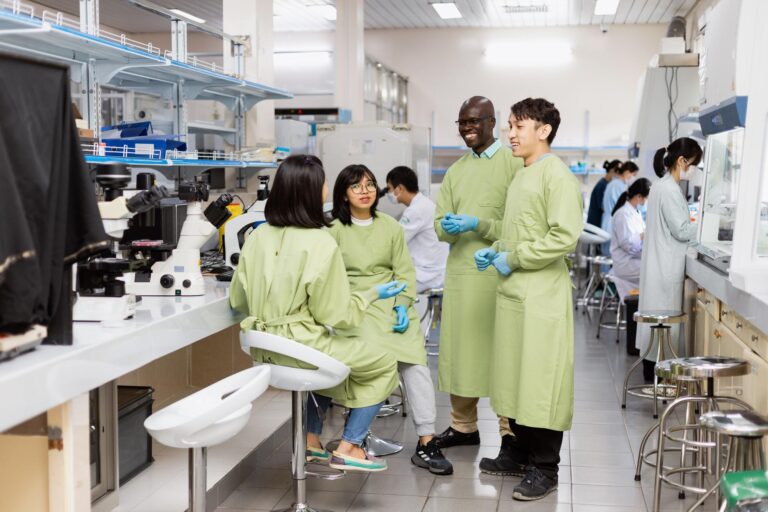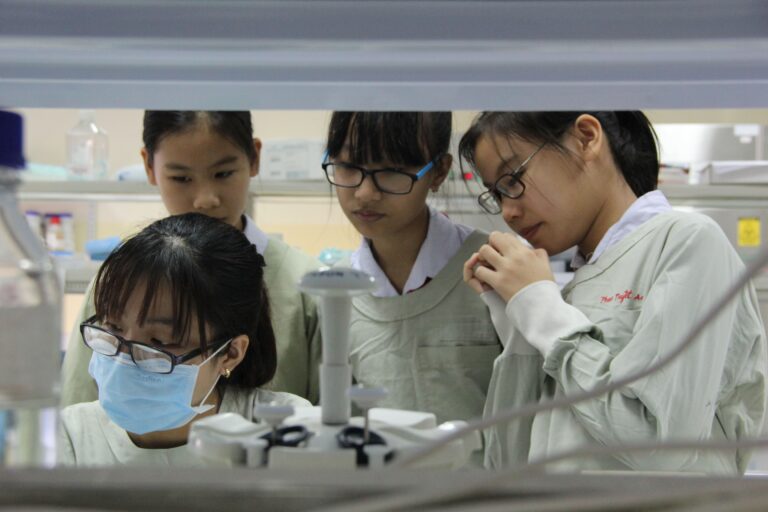OUCRU’s state-of-the-art laboratories are crucial to our medical research breakthroughs, providing robust, evidence-based data that fuels our understanding and treatment of infectious diseases. Our laboratory network has evolved significantly over the years, encompassing a diverse range of facilities designed to meet the complex demands of our research programs.
OUCRU operates and collaborates with a variety of laboratories, each playing a vital role in the research process:

These labs are our first point of contact for samples. Located across Vietnam (including 26 sites in Ho Chi Minh City) and in our other locations, site labs collect, process, and temporarily store samples before they are securely transported to our central laboratories for further analysis. This process ensures sample integrity and facilitates efficient research workflows.

Partnering with established clinical diagnostic laboratories, such as those at the Hospital for Tropical Diseases, Pham Ngoc Thach Hospital, and the Pasteur Institute Nha Trang, allows us to leverage existing infrastructure and expertise for routine patient care. These labs adhere to stringent diagnostic protocols and employ approved methodologies for sample analysis, contributing valuable data to our research while supporting patient management.

At the heart of OUCRU’s research efforts are our 18 biomedical research laboratory units in Ho Chi Minh City. These labs investigate the biological and biochemical mechanisms underpinning health and disease, focusing on areas such as cellular processes, genetics, molecular biology, and microbiology (bacteriology, virology, and mycology). Researchers utilize advanced techniques, including cell culture, animal models, and analytical processes, to unravel disease mechanisms and pave the way for new therapies and control strategies.
All our laboratories adhere to strict biosafety standards, categorized by Biosafety Level (BSL), also sometimes referred to as Containment Level (CL) or Protection Level (PL). These levels dictate the level of containment required for handling specific biological agents.

Handles agents unlikely to cause disease in healthy individuals. These labs are commonly found in educational settings.

Handles agents with moderate potential hazard to laboratory personnel and the surrounding environment. The majority of OUCRU’s laboratories in Ho Chi Minh City, as well as those in Indonesia, Hanoi, and Nepal, are designated BSL-2.

Handles agents that can cause serious or lethal disease through inhalation. BSL-3 facilities are specially engineered with rigorous controls, including both engineering and administrative measures, to protect laboratory staff and the surrounding environment. Access to BSL-3 facilities is determined by a strict criteria based on the activity performed, the pathogenicity and transmissibility of the biological agent, and the availability of treatment or prophylaxis, including vaccines.